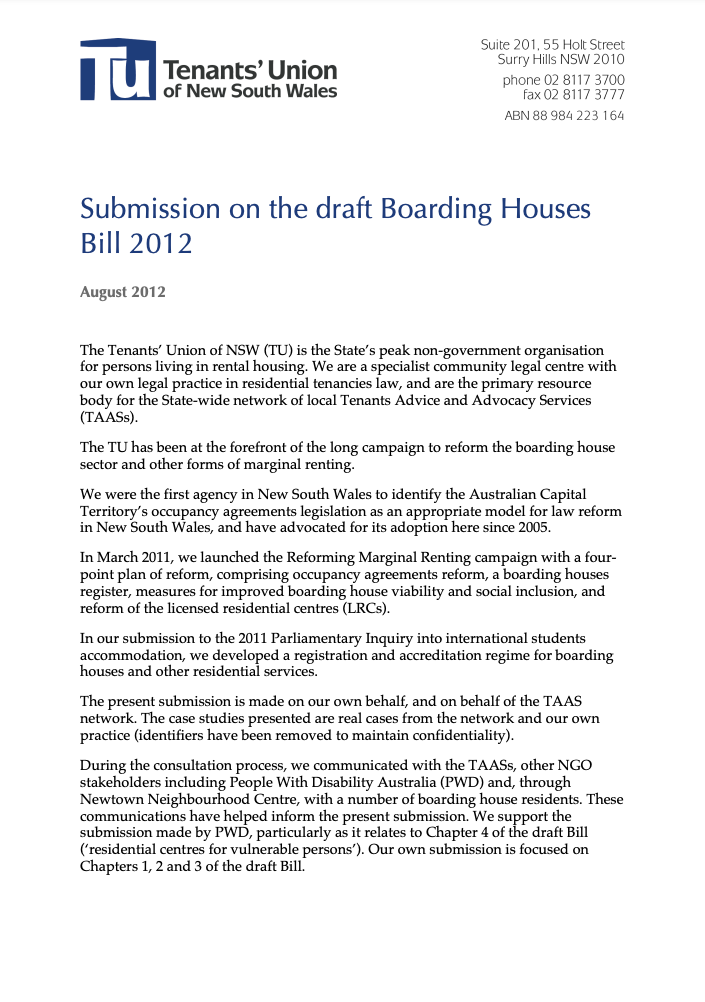Submission on the draft Boarding Houses Bill 2012
01/08/2012
The draft Bill is a welcome measure of long-overdue law reform for the boarding house sector in New South Wales.
The scope of the reform it seeks to achieve is, however, limited, and there are certain deficiencies in its provisions.
These limitations and deficiencies may come from the basic approach of the draft Bill, which appears to us to start from the regulation of the LRCs by NSW Ageing, Disability and Home Care (ADHC), then take a step further in the direction of the unlicensed boarding houses. The form of the draft Bill reflects this approach: it is basically a new Youth and Community Services Act 1973 (YACS Act), with certain of the defects in that Act repaired, and new functions added on.
These repairs and new functions are important. In particular, the new boarding houses register, and the new provisions for occupancy agreements, are important advances in the regulation of unlicensed boarding houses.
However, it leaves uncovered the numerous classes of marginal renters who do not reside in ‘registrable boarding houses’, as defined in the draft Bill, and as a result these renters would continue to have only common law lodging licences, and no straightforward access to effective dispute resolution. Furthermore, proprietors may try to exploit the exclusions from the draft Bill to avoid coverage: there is one exclusion, in particular, that could be exploited by virtually any proprietor and, if implemented, could be fatal to the reform of the boarding house sector.
Where the draft Bill does apply, it would also leave unaddressed a number of problems: in particular, problems relating to bonds, utility charges and penalty terms are commonly encountered within unlicensed boarding houses, if not LRCs.
The approach of the draft Bill also means that it does not realise the full potential of occupancy agreements to contribute to better outcomes in the boarding house sector. In particular, the draft Bill fails to ensure that the occupancy principles it sets out are properly reflected in occupancy agreements; provides for inadequate remedies in the event of a dispute; and neglects to include any penalties or other enforcement measures. (Instead of residents asserting contractual rights, the draft Bill would rely on the issuing of ‘guidelines’ by a regulator as to what constitutes compliance with the occupancy principles.) The occupancy principles themselves are mostly sound and fair, though there are some aspects that should be improved.
Finally, because it so largely proceeds from ADHC’s regulation of the LRCs, the draft Bill replicates a basic problem with the definition of LRCs in the provisions relating to residential centres for vulnerable persons.
Each of these limitations and deficiencies can be corrected within the current structure of the draft Bill. We make recommendations along these lines throughout the present submission. Our recommendations are directed at making the draft Bill a sound, fair and successful piece of law reform for the boarding house sector and the people who live in it.


